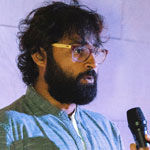Despite all that it has done to enrich our lives and its exceptional potential to go on enhancing them, the internet has proved to be a spectacularly and continuously disruptive technology. It has brought with it impoverished publishers, shrinking editorial budgets and a new generation of web natives who prefer not to pay for professional content. Possibilities abound, but the resources with which to provide them have rarely been so scarce. There is no single route to a profitable, independent future. One thing alone is clear: the future of publishing is a different planet. We must do things differently there.
The enduring appeal of professional journalism
Several academics dream of a future devoid of professional journalism. One imagines ‘vast new opportunities for the formerly atomised audience to participate on their terms, connect and coordinate horizontally with each other, and do so in a way that creates value through collective intelligence and contributions.’ Another envisages a multiplicity of online ‘agoras’ (an agora was a place for assembly and debate in ancient Greece), where web users will congregate to produce organic, non-linear story telling informed by the wisdom of crowds.
Such predictions are rooted in the jaded Marxist fantasy that professional journalism exists solely to make profits and has never done any good. They are wrong. As we have grown accustomed to the power of digital technology, we have learned an emphatic lesson: only professionally edited media outlets have the authority to satisfy discerning readers. But, sadly, the market conditions that have given the jaded fantasies new life are not wrong. Money is tight and priorities are becoming distorted: some journalists are under pressure to concentrate on enhancing relationships with advertisers; some sponsored-content is coming perilously close to masquerading as objective reporting.
So, how can good, honest publishing companies remain viable while preserving their integrity and serving their customers? How, in other words, can publishing secure its future as an honourable estate, not just an industry. Granted, if I had a complete answer, I wouldn’t need the day job. But of this I am confident: part of the answer lies in recruiting a new breed of journalists who can work across formats and promote ethical standards.
When budgets are limited, any sensible employer craves a few all-rounders who can deliver a lot. My message is that such journalists exist, and the best among them really can make creative multimedia journalism fast and accurately. While the market has been changing, universities have been changing too. We know employability matters and we are producing graduates who are eminently employable. Beware though; they may not be studying the degrees from which you used to recruit.
All singing, all dancing
With the honourable exception of those taught by elite universities, convergence has reduced the market value of purely academic degrees in traditional disciplines. Today’s multimedia reporter needs the ability to gather, organise and deploy information, images and data from primary and secondary sources and to create and deploy text and images for publication in print, for broadcast and online. They need to be able to use cameras and audio recording equipment and the relevant editing software. They also need advanced ability to build, edit and update web-pages.
To these practical competencies must be added advanced awareness of and familiarity with social networking technologies and sites and editorial ability to exploit them fully. Creating content for and interacting with online audiences and in particular with mobile online audiences is an essential editorial skill. Learning to deploy journalism via mobile operating systems such as Google’s Android and Apple’s iPhone is no longer optional.
For journalists, team-building has been a core skill since the professionalisation of publishing in the second half of the nineteenth century. Now, the modern journalist needs the flexibility to work in and organise teams creating output in single, bi and multimedia formats.
This basic skill is useful in every type of journalism. It applies when a journalist toils to produce the novelist Jay McInerney’s recipe for tabloid success, ‘Killer Bees, Hero Cops, Sex Fiends, Lottery Winners, Teenage Terrorists, Liz Taylor, Tough Tots, Sicko Creeps, Living Nightmares, Life on Other Planets, Spontaneous Human combustion, Miracle Diets and Coma Babies.’ It is as useful to serious journalists who aspire to apply due impartiality to their subject matter, and to reflect a breadth and diversity of opinion.
Of course, technical virtuosity alone does not make a great journalist. To serve its true purposes, the publishing industry needs intellectual acuity too. The good news is that graduates who possess both do exist and they remain as determined as any of their predecessors to work in an industry that allows them to earn a living by expressing themselves creatively. A challenge for many employers is working out how to find them among the multiplicity of universities and degrees that now blanket Britain. Here is my advice.
Recruiting: what to look for
One excellent way to identify degrees that educate graduates who are accustomed to producing work of publishable standard is to look for evidence of professional accreditation. The gold standard in journalism and publishing is provided by the National Council for the Training of Journalists (NCTJ) Diploma. You can be confident that students who have passed this demanding qualification will be accustomed to writing clean, accurate copy. They will understand the law and they will be accustomed to working under pressure. They will almost certainly have completed work experience.
The NCTJ accredits individual undergraduate and postgraduate degrees, not universities. An accredited course must offer students every opportunity to learn essential professional skills in journalism and, on the best courses, this has long ceased to mean print skills only. The modern NCTJ has embraced multimedia skills. Many accredited degrees now teach advanced broadcast and online techniques. Look out in particular for graduates who, in addition to the compulsory NCTJ modules in law, politics, reporting and shorthand, have taken modules in broadcast journalism, video-journalism for online and production journalism.
To find out which degrees are accredited by the NCTJ, simply visit the NCTJ website.
But don’t stop there. The plain truth is that some universities are better than others. Fortunately, there are additional ways to distinguish between excellent degrees and those which are less than likely to produce graduates who are ready to work in a multimedia publishing environment. One approach is to follow links to the websites of individual university departments that deliver accredited degrees. If a high quality course is taught at a university close to your business you should do more than simply visit the website. By meeting the academics and their students, you should be able to identify candidates for work experience. Today’s students know that impressing during work experience is an essential step on the road to securing a job. Most modern university academics understand that employability matters and, if doubts still linger on that subject in some university departments, they have been expelled entirely from professionally accredited schools of journalism.
But while time spent building a relationship with a local university will never be wasted, you should also look further afield. The best students only occasionally stay at home to study and the best candidates for employment in your business might well be studying hundreds of miles away from the patch they will return to when they graduate. Fortunately, a guide has recently appeared that can help you to identify their likely locations. The Guardian University Guide for 2015 is the first such publication to include a dedicated league table for degrees teaching journalism and publishing. Even more usefully, it ranks courses according to criteria including employability, staff student ratio, spend per student and, crucially, average admissions tariff. You can find the table here.
Preserving integrity
These simple steps really can help you to identify superb multi-skilled, graduate practitioners, but beware of their other great asset: their capacity for critical, independent thought. Recent graduates may understand the pressures that have persuaded so many companies to blur the boundaries between editorial and advertising. Some may even be willing to acknowledge that the church / state barrier which ensured publishing’s integrity for so long can be adapted to suit modern needs. They have grown up with wrap-around covers on national newspapers; product placement in television drama; advertising that knows their location and sponsored tweets. They appreciate great advertising and they know the most creative campaign does not necessarily promote the best product. Our media saturated world has made the brightest among them sceptical to the verge of acute cynicism.
My best students understand that trust is too precious to squander and that advertisers’ desire to be integrated seamlessly into editorial is one wise publishers must resist. It is, after all, a desire which, if satisfied, must inevitably destroy any advantage it might confer. The logic is inescapable. Advertisers crave approval in editorial content because editorial content is independent. They understand that editorial independence confers credibility and that credibility inspires confidence. So, they should also recognise that the moment it loses this quality it will cease to be credible. Native advertising will eat itself.
No matter how quickly, profitably and attractively we can distribute text, images and data in the multimedia era, we must not abandon the principles on which the right to publish freely was secured. Commercial strategies that ignore these principles in pursuit of temporary advantage are fatally flawed. They will be beaten by net natives who understand that, while digital revenues don’t yet match those that flowed in the analogue era, they are rising and they can sustain digital start-ups unburdened by legacy costs. The best graduates can launch their own publishing enterprises if those competing for their services abandon standards.












